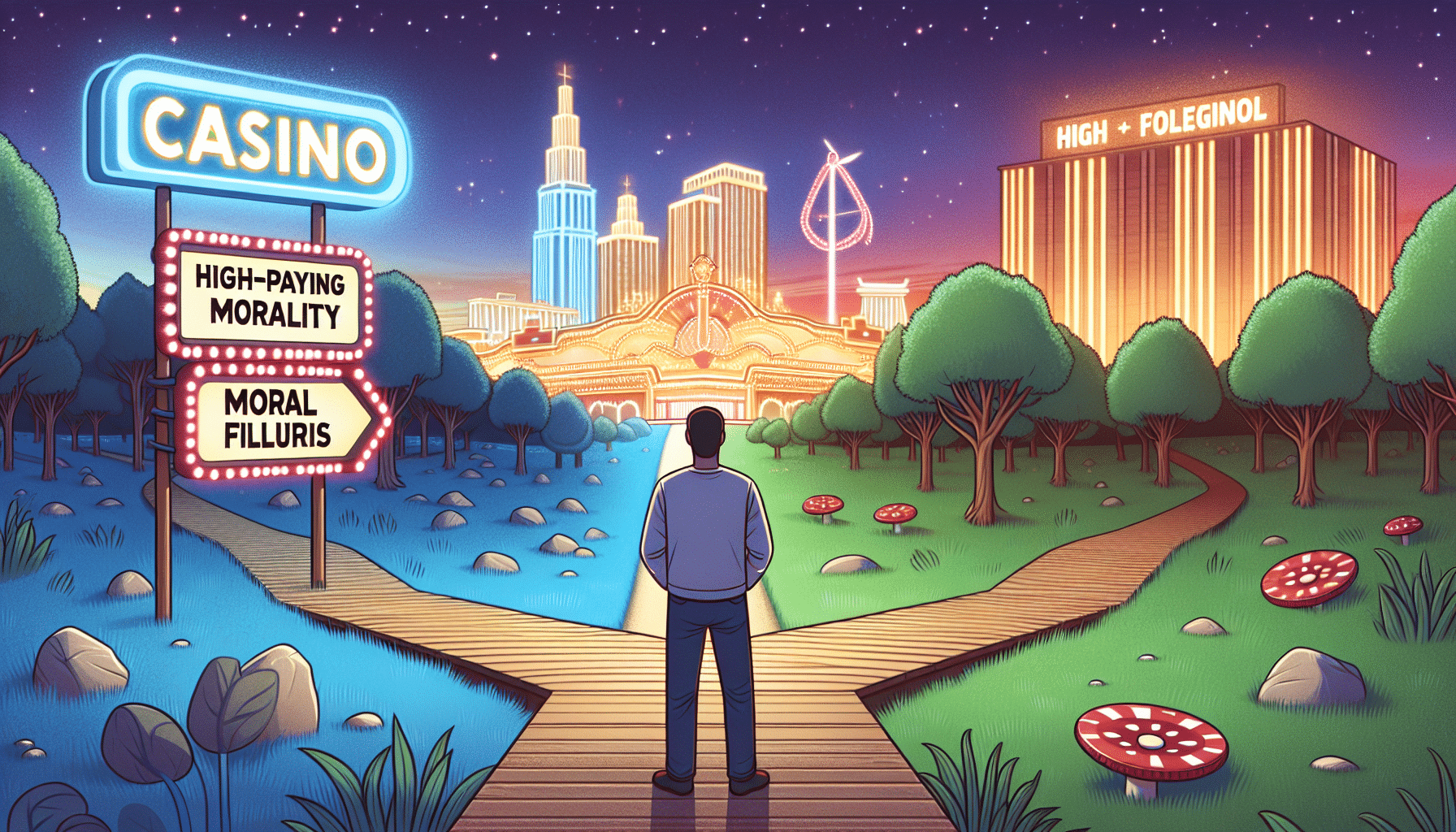For many, the idea of living near a casino presents a unique blend of opportunity and challenge. The prospects of lucrative casino jobs can be enticing, especially when these positions offer competitive pay in an increasingly tight job market. However, for individuals who believe that gambling is morally wrong, navigating this landscape requires careful consideration. Balancing personal values with financial needs isn’t always straightforward.
Understanding the Casino Job Market
In areas with active casino industries, the demand for a diverse range of skills is high. From hospitality roles to security positions, and even financial management, casinos often provide employment opportunities that can match or exceed average wages for the region. According to the American Gaming Association, the gaming industry significantly contributes to local economies, which translates into more job openings and higher pay scales.
Exploring Available Opportunities
Casinos offer a myriad of roles that don’t necessarily require direct involvement in gambling operations. Consider positions like:
- Food and Beverage Services: Many casinos operate high-end restaurants and bars.
- Hotel Management: With attached accommodations, there’s a need for hospitality professionals.
- Entertainment Coordination: Organizing shows and events for patrons.
- Security Personnel: Ensuring the safety of guests and staff.
- Maintenance and Cleaning: Keeping the premises in top condition.
Working in these sectors might align better with personal beliefs while benefiting from the competitive salaries casinos offer.
Weighing Personal Beliefs Against Employment Needs
It’s common for people to grapple with the moral implications of working in industries they find ethically challenging. If you’re conflicted by the presence of a casino in your vicinity, here’s how you can approach the dilemma:
Reflecting on Personal Values
Your moral compass is an essential part of your identity. Before considering a job in a casino, evaluate whether the nature of the work aligns with your ethical standards. The Psychology Today suggests that understanding your core values can significantly impact career satisfaction.
Assessing the Economic Impact
While personal integrity is vital, economic realities cannot be ignored. If a high-paying job at a casino could dramatically enhance your quality of life, consider how you can balance these benefits with your moral stance. Could donating a portion of your salary to organizations that combat the negative aspects of gambling provide a sense of resolution?
Navigating Ethical Employment
If the idea of working directly in the gambling sector remains uncomfortable, look for indirect roles that might sit better with your conscience. Jobs in technology or HR, for instance, often support casino operations without involving the gaming floor.
Exploring Career Transition Options
If accepting a casino job seems like a temporary solution, it may serve as a stepping stone toward other opportunities. Learning new skills or advancing in a management role can open doors to various industries beyond gambling, should you decide to switch later.
Finding the Balance
It’s important to gauge how these roles impact your daily life and mental health. Consider seeking advice from a career counselor to explore your options and clarify your long-term goals in light of your values.
Case Studies and Personal Stories
There are numerous accounts of individuals who have taken on casino-related jobs for pragmatic reasons, only to find they could navigate their moral discomfort with strategic planning and ethical adjustments in their financial habits. Sharing experiences within trusted community groups or forums can also offer fresh insights and support as you make this important decision.
Final Thoughts on Finding the Right Path
Navigating the intersection of morality and employment is a deeply personal journey. By understanding the scope of available opportunities, carefully weighing your values against current financial needs, and contemplating long-term career impacts, you can make a decision that honors both your personal and professional aspirations.
Ultimately, the key is to remain true to your values while embracing the pragmatism necessary in today’s economic landscape. Whether staying the course or seeking an alternative path, ensuring your decision aligns with your broader life goals is paramount.

